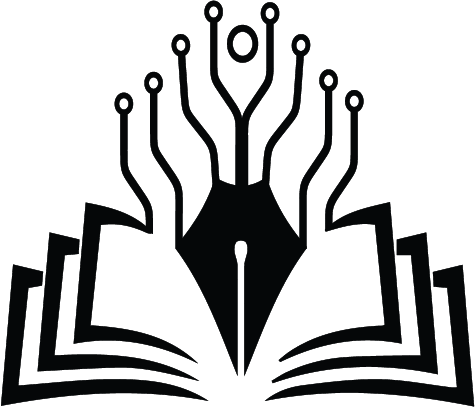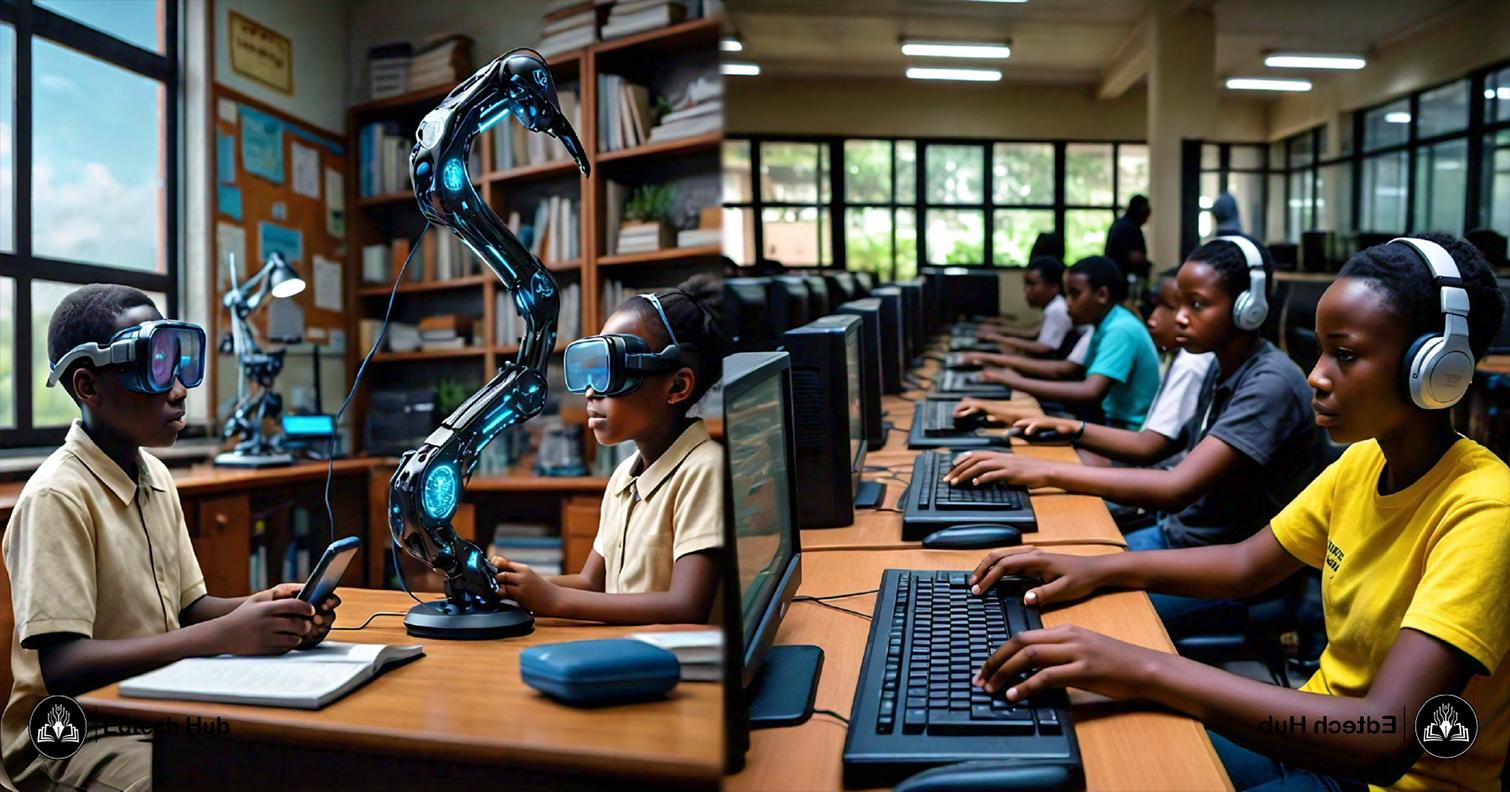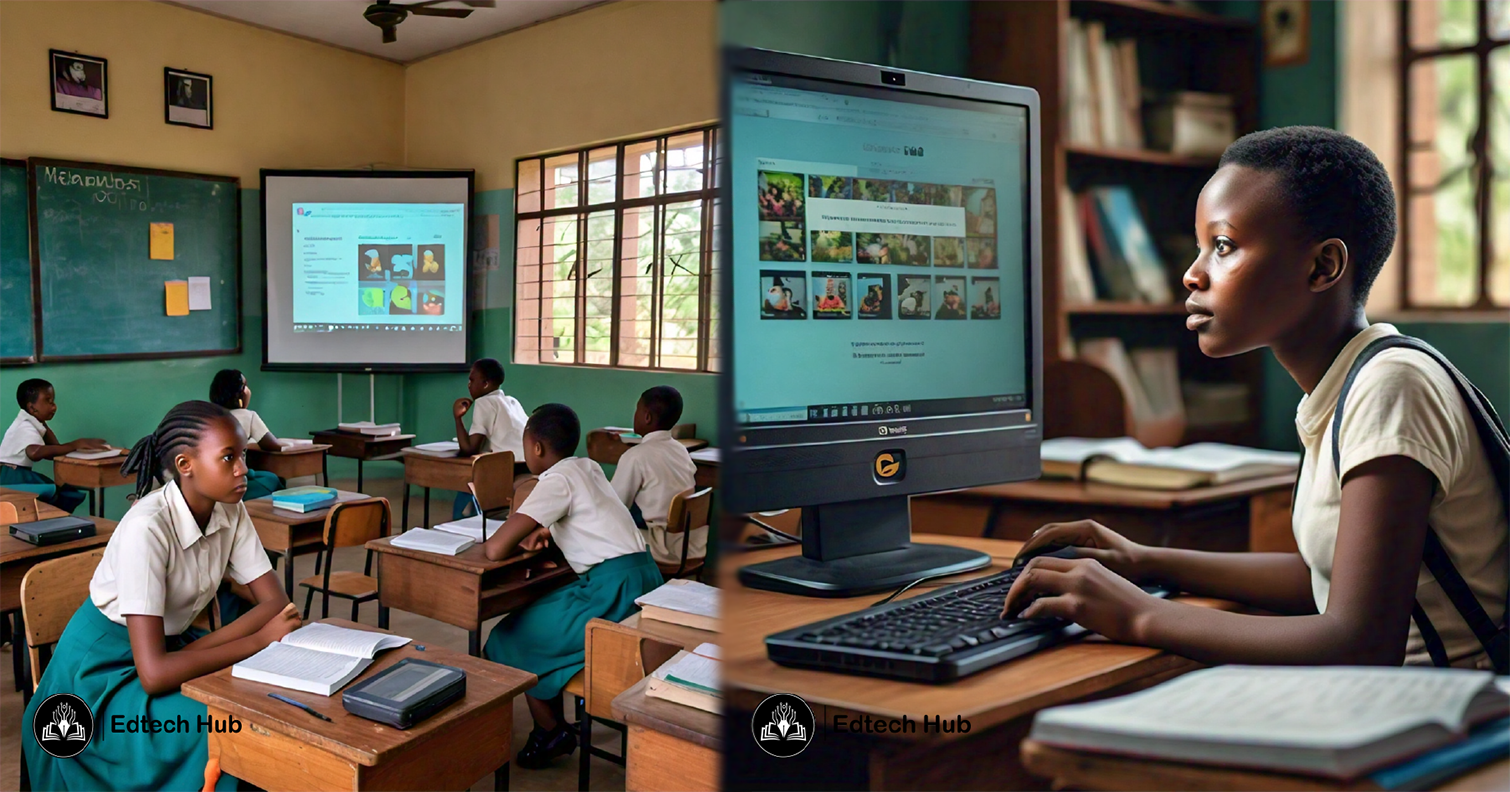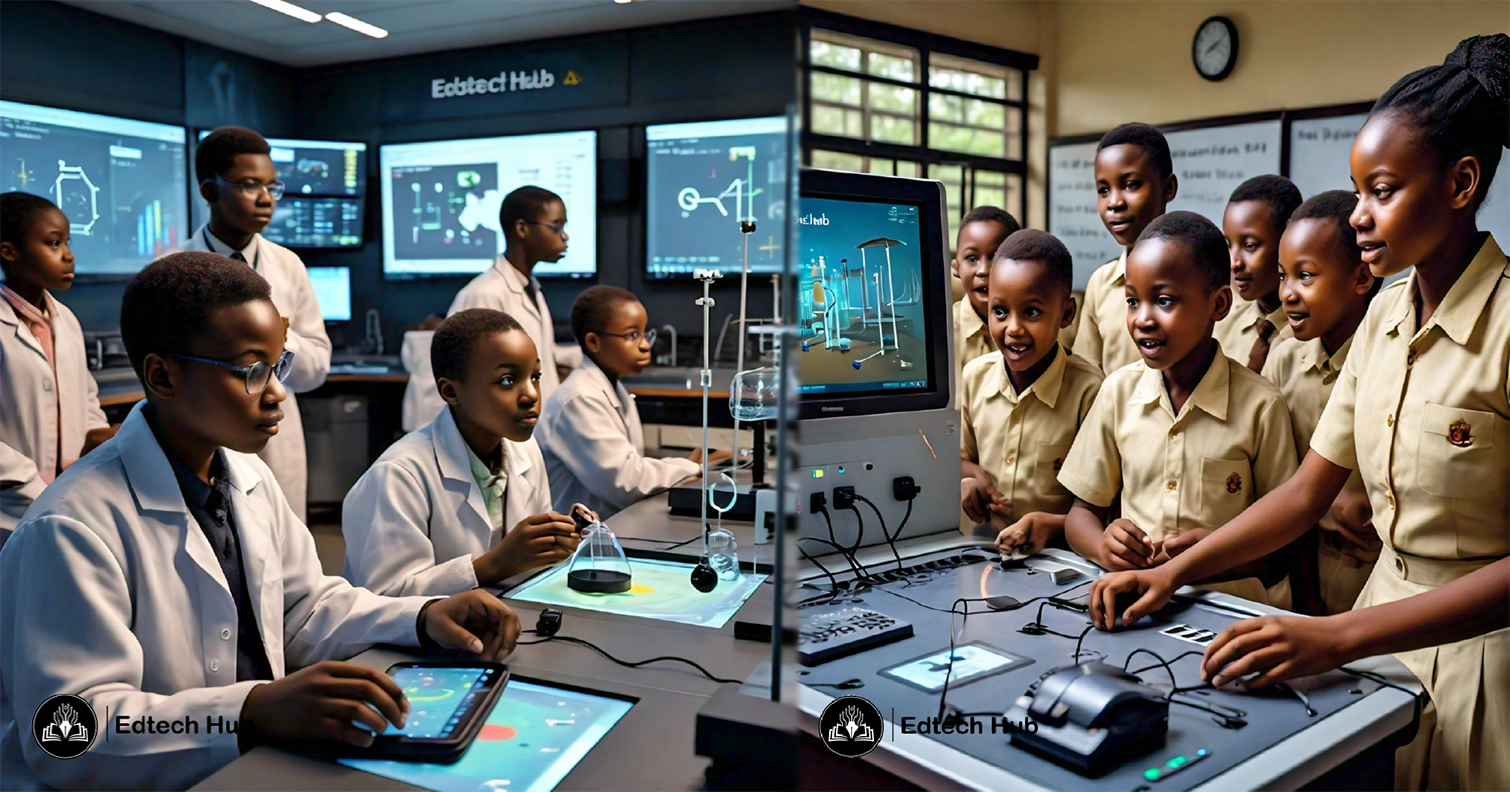
About Us
Who Are We
Welcome to Edtech Hub Uganda, a pioneering force in the revolution of Uganda's educational landscape through the integration of artificial intelligence (AI). Established with a vision to reshape the contours of learning, we stand as a beacon of innovation in the education technology sector. Our core mission is to make a meaningful difference in Uganda's education sector by employing advanced AI to introduce state-of-the-art learning methodologies and tools. At Edtech Hub Uganda, we are committed to enhancing the educational journey of every Ugandan student, making learning not just more engaging and inclusive but also highly personalized
In a world that is increasingly driven by technology, the need for digital education solutions has never been more critical. The inception of Edtech Hub Uganda is a response to this urgent demand. We are here to empower Ugandan students, educators, and educational institutions by providing them with cutting-edge AI-driven tools and solutions. Through these innovations, we aim to improve learning experiences, promote inclusivity, and elevate the overall quality of education across the nation. Our tools are designed to ensure that every learner is engaged, challenged, and supported throughout their educational journey. Our AI-powered solutions empower students to delve deeper into subjects that spark their curiosity, fostering a love of learning that extends far beyond the classroom. This will prepare them not just for exams, but for the dynamic and ever-changing world they will inherit. Equipping students with the skills to adapt, innovate, and collaborate will be essential for their success in the 21st century workforce and as engaged citizens of a globalized world.
Our Mission
To empower Ugandan students, educators, and educational institutions with advanced AI-driven tools and solutions. We strive to improve learning experiences, promote inclusivity, and elevate the overall quality of education across the nation. By leveraging artificial intelligence, we aim to make learning more engaging, inclusive, and tailored to individual needs.
Our Vision
We envision a Uganda where every student, regardless of their background, has access to a world-class education fueled by AI. We believe that by providing students with the tools to learn effectively and efficiently, we are cultivating critical thinkers, problem-solvers, and lifelong learners.
Shaping the future
The Problem
The Ugandan education landscape faces unique challenges such as:
1. Insufficient infrastructure: Many schools in Uganda lack proper classrooms, libraries and laboratories, forcing students to endure overcrowded spaces and limited resources.
2. Teacher shortages: Uganda faces a scarcity of qualified educators, especially in remote areas, resulting in large class sizes and hindering effective learning experiences.
3. Digital divide: Many schools in Uganda lack access to computers and the internet, putting students at a disadvantage and limiting their exposure to essential digital skills.
4. Socioeconomic disparities: Families in impoverished communities struggle to afford the cost of education, including fees, uniforms and textbooks, forcing some children to drop out of school prematurely.
5. Gender inequality: Girls continue to face barriers to education, including cultural norms, early marriages and inadequate facilities like separate toilets for girls.
6. Lack of access to education for disabled children: Uganda is also facing the challenge of a lack of access to education for disabled children, and organizations like UNICEF and the Uganda Society for Disabled Children are working to address this issue.
7. High dropout rates: High dropout rates, especially among teenage girls, due to factors such as child marriage, teenage pregnancy and school fees.
8. Poor quality of education: Poor quality of education, with only about 50% of children in Primary 3 being proficient in literacy and numeracy.
9. Inequitable access: Inequitable access to education, with secondary level enrollment being five times higher for the richest 20% of the population than for the poorest 20%.
10. Lack of access to quality education for refugee communities: Refugee children in Uganda face significant barriers to education leading to a significant gap in education and skills.
Our Approach
Our approach goes beyond simply deploying AI technology. We are committed to the following:
1. Insufficient Infrastructure:
Virtual Classrooms: Our AI-powered virtual classrooms that can supplement physical infrastructure, allowing students to access lessons remotely and reducing overcrowding.
Virtual Community Learning Hubs: We have established AI-equipped virtual community learning hubs in underserved areas to provide students with access to digital libraries, virtual labs, and interactive learning tools.
2. Teacher Shortages:
AI Tutoring Systems: We are implementing AI tutoring systems that provide personalized learning experiences to students, helping to bridge the gap caused by teacher shortages.
Teacher Training Programs: We are using AI to deliver continuous professional development and training for teachers, particularly in remote areas, enhancing their skills and teaching effectiveness.
3. Limited Access to Technology:
Infrastructure Partnerships: Partner with technology providers to enhance digital infrastructure in schools, ensuring all students have access to necessary technological tools.
Affordable Technology Solutions: Work with device manufacturers to provide affordable tablets and laptops to students, and explore subsidies or funding models to make these devices accessible.
4. Lack of Access to Quality Education for Refugee Communities:
AI-Driven Educational Programs: We develop AI-powered educational programs specifically designed for refugee children, addressing their unique needs and challenges.
Partnerships with Organizations:We are collaborating with NGOs and international organizations to deploy AI-based educational solutions in refugee camps, providing access to quality education and skills training.
5. Gender Inequality:
Awareness Campaigns: We have launched AI-powered campaigns to promote gender equality in education, addressing cultural norms and encouraging community support for girls’ education.
Safe Learning Environments: We use AI to design and implement safety measures ensuring a conducive learning environment for female students.
6. Lack of Access to Education for Disabled Children:
Assistive AI Technologies: We have deployed AI-powered assistive technologies such as speech-to-text, text-to-speech, and customized learning tools to support disabled children in their education.
Inclusive Curriculum Development:We working with organizations to develop an inclusive curriculum that integrates AI to provide tailored learning experiences for children with disabilities.
7. Insufficient Educational Materials:
Digital Content Libraries: We develop AI-curated digital libraries that provide a vast array of educational materials, accessible to both students and teachers. This can include e-books, videos, and interactive simulations.
AI Content Generation: We use AI to generate high-quality educational content that aligns with the national curriculum, ensuring all students have access to up-to-date learning materials.
8. Poor Quality of Education:
AI-Enhanced Learning Tools: We create AI-driven learning tools that provide personalized feedback, adaptive learning paths, and interactive content to improve literacy and numeracy skills.
Teacher Support Systems: We use AI to offer real-time support and resources to teachers, helping them improve instructional quality and address learning gaps.
9. Inadequate Emphasis on Vocational Training:
AI-Driven Vocational Training Programs: We develop AI-driven vocational training programs that provide practical skills and hands-on learning experiences, tailored to the needs of the job market.
Industry Collaboration:We are partnering with industries to create AI-powered training modules that align with the demands of the 21st-century job market, ensuring students are well-prepared for future employment opportunities.
10. Limited Access to Early Childhood Education:
AI-Powered Early Learning Apps: Create engaging and interactive AI-driven early learning apps that can be used on smartphones and tablets, providing foundational skills to young learners.
Supporting Early childhood development Centers: We provide AI tools to community learning centers in underserved areas to offer early childhood education, utilizing AI to customize learning experiences for young children.



